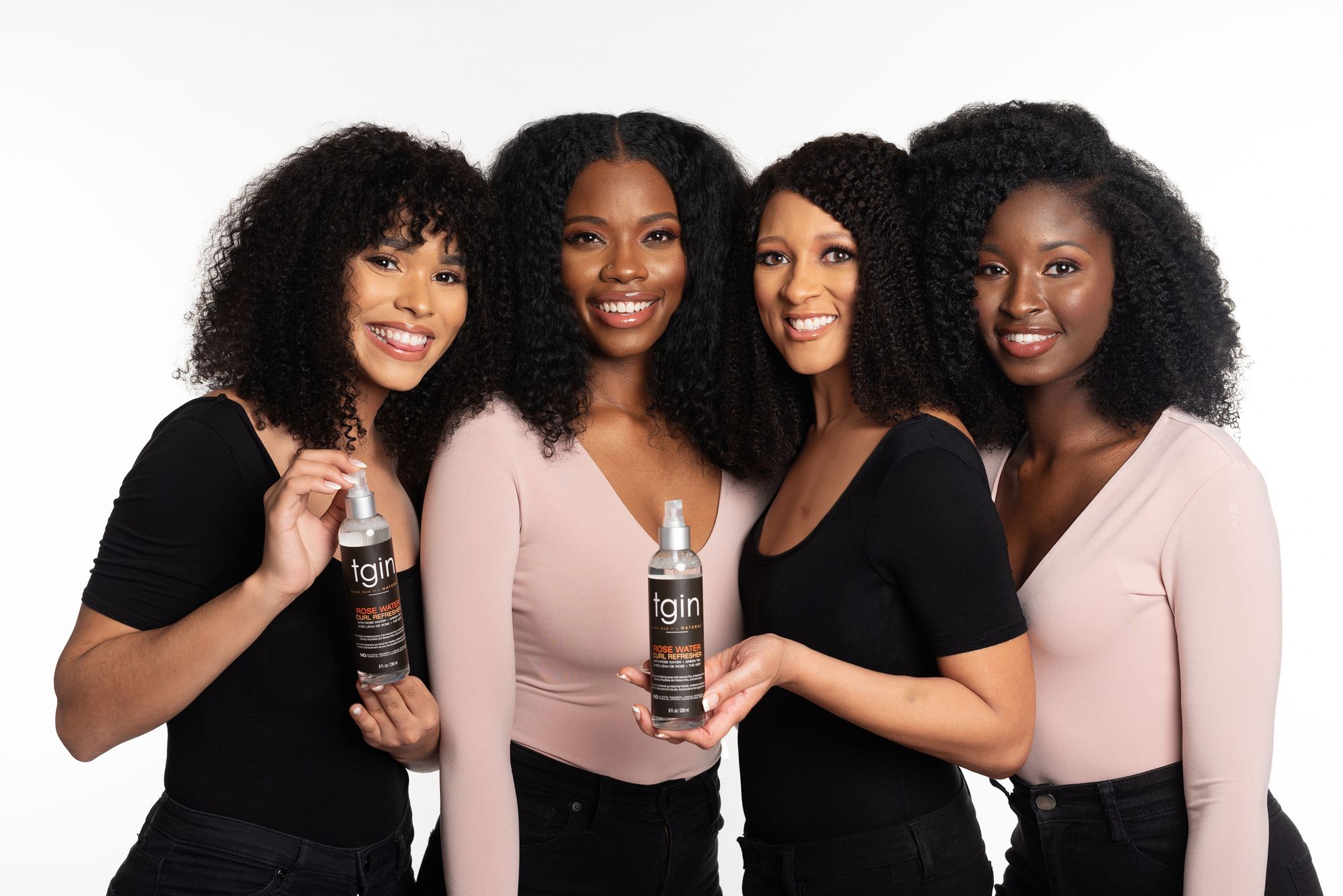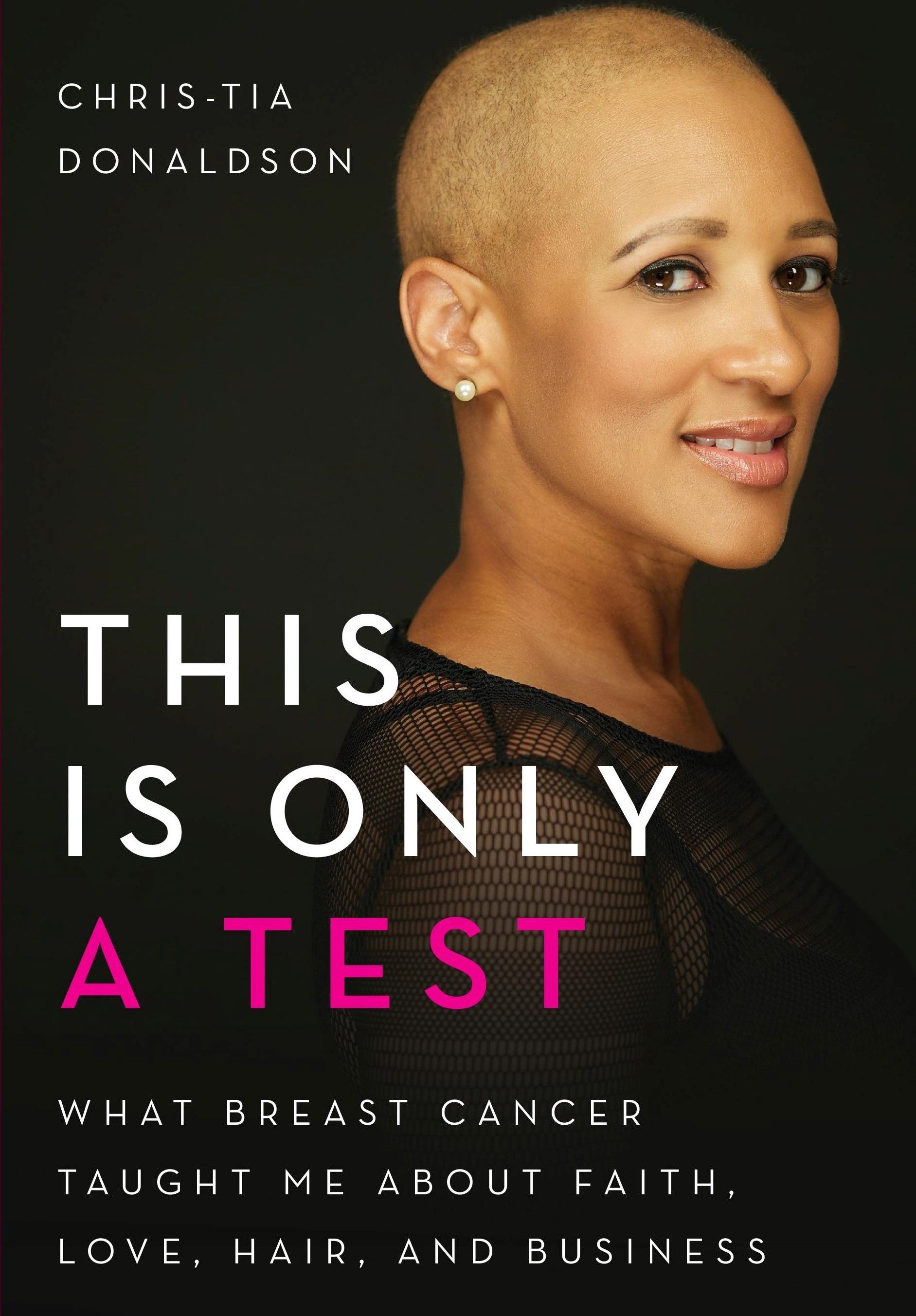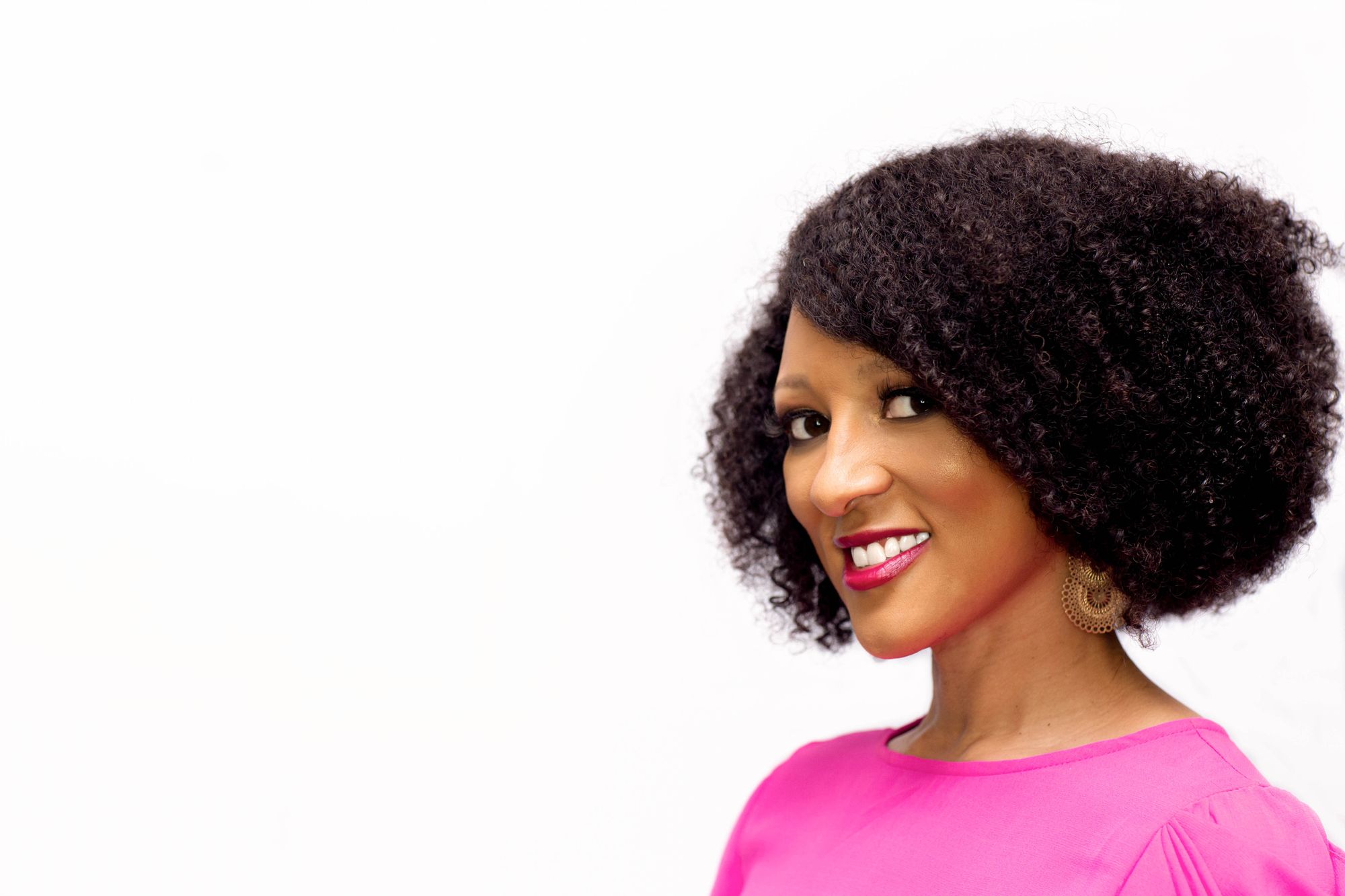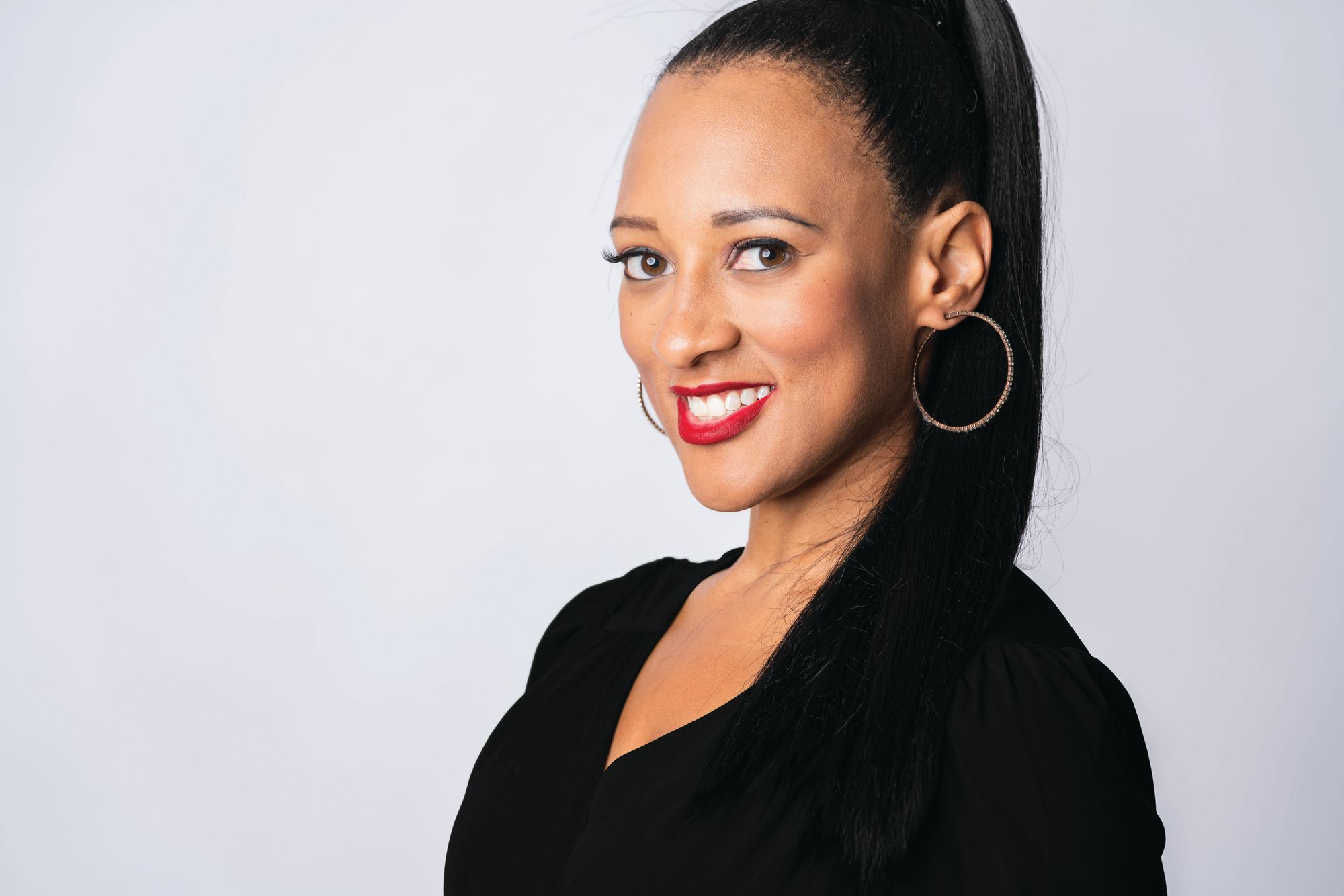Entrepreneur Chris-Tia Donaldson knows all too well the toll that stress takes on the body. In December 2015, mere months after launching her popular natural hair care line Thank God It's Natural (TGIN) in Target stores nationwide (all while balancing her career as a corporate lawyer) Chris-Tia was diagnosed with breast cancer at the young age of 36.
Recently, in honor of National Stress Awareness Month, I caught up with the author, CEO and two-time Harvard graduate to discuss the importance of stress management, self-care, and mental health for black women.

Your mother was a trailblazer for black women in finance, opening her own accounting firm at 27, and both your father and sister obtained PhDs. How did growing up in an ambitious family shape your relationship with work and achievement?
When you grow up around so many driven and accomplished people, they become the blueprint for your life. You start to model their behavior because that's what you're used to seeing. You see a woman as accomplished as my mom, the first CPA in the state of Michigan, invited to the White House several times, you feel like it's up to you to carry that torch. I put that pressure on myself, but it came at a cost, and that cost was my health and ability to recognize stress.
You don't have to have a mom that went to the White House to feel the same pressure I felt. This pressure exists within the Black community, particularly in the professional Black community, and the weight of the world is on your shoulders a lot of the time. It's the pressure to excel.
Entrepreneurship has opened up amazing opportunities for the Black community. As an entrepreneur, do you see any stress-related downsides to the hustle and grind movement?
Absolutely. People feel as if you have to be an overnight success. Everyone is not built to be an entrepreneur. It's super lonely, chaotic; it's a total emotional roller coaster. There are many things about it that are unhealthy, and our culture doesn't shed light on it. The business comes first; you eat, breathe, and live the business and that isn't healthy. It's not everyone's path.
In your book, "This Is Only A Test', you talk about your experience with microaggressions in the workplace. What are some of the everyday stressors black women face in corporate America?
As Black women, we feel like we have go at it alone. We feel like we have to do it by ourselves because nobody will catch us if we fall. We go into these professional environments without any kind of safety net.
Then, there's pressure to be perfect. You have to work twice as hard or be three times as good as everyone else. When you layer it with the microaggressions, the comments and the ignorance, it becomes slime. Many Black women in professional settings don't know they're under so much stress and pressure because as soon as they graduate from college, they're dealing with these things in the workplace. It becomes their baseline.

Women and minorities may keep workplace grievances to themselves to prevent rocking the boat. How does this self-policing contribute to stress?
You can't lose your cool, but you have all these emotions bottled up inside. That stress builds up, and it's cumulative over the years. We don't have an outlet for it if you're not in therapy or even aware of those feelings, and that can make the situation even worse.
Why do you think things like therapy were taboo in the Black community for so long?
We've always had such an issue with therapy because it seemed like something only white people did. We didn't want the stigma that came with not having things under control, or not being a superwoman.
And then, as a people, we've always been very spiritual and religious. We've taken our problems to the altar or to our church friends and family. Unwillingness to take your problems to the altar and taking them to a therapist instead was reflected as undermining your Christian values. Feeling like God is not enough to solve your problems.
People are becoming more open to therapy. I've seen from Gen Z on social media the idea that it's okay not to be okay. There's a conversation percolating on social media about therapy, stress, and microaggressions.
Strong women are lauded as "superwomen," but that creates a pressure of its own, to have it all together. You write about your mom never cracking, even while dealing with her cancer diagnosis. How can we, as you say, "take off our capes" and get out of survival mode?
Being skeptical is a survival skill as a Black person. We feel like we can't trust anyone. That's what we've needed to survive. When I was in an entrepreneurial space, I had the same attitude of, 'I have to watch my back.' But once I started working with other hair care owners, I began to let my guard down, trust some people, and things got easier.
We can't go through life always believing that something bad is around the corner. And that's hard as Black people because we're exposed to so many examples of violence against us and our children. But, we have to find a way to balance the fear and self-preservation with some level of 'the universe has my back' and 'I'm divinely protected.'

Why is it important to recognize and deal with negative emotions and stress in a healthy manner?
Negative emotions get trapped inside. Western medicine treats the symptoms, but eastern medicine treats the root cause, which are emotional or energetic blockages. Those emotions cumulatively build up in your body and manifest as disease. My mom died when I was 17 and I didn't deal with it until now as a 40-year-old woman. Do I think this contributed to me getting breast cancer? Absolutely.
I'm not saying everyone's going to get cancer. It may not be obvious, it may just be a whisper of 'I'm tired of working.' Sometimes we're looking for obvious examples, like a heart attack. But stress is a silent killer. You have to listen for those signs even if they don't manifest in some major health issue.
How can someone begin to recognize these physical signs of stress?
Maybe you're tired, or your back hurts. The signs are subtle. That's where taking stock of your body during meditation comes in. For a lot women, relaxation is going on a vacation, but the rest of their life is chaotic and stressful. So the point is, you build in a little bit of relaxation, or timeout, every day. Then you have a baseline for when your body strays way too far from when it was feeling good.
So, what are some techniques that we can use to manage stress in our fast-paced society?
- We have to slow down. We're being forced to slow down during this period of COVID-19. For some people it's hard to slow down and take a break, because when you do that you come face-to-face with the stress. When you're quiet, you really start to tune in to your subconsciousness. The number one thing people can do is get quiet.
- Get rid of the noise. Take a break from social media. I've started observing the sabbath, so every Friday I turn off social media and my cellphone, and go 24 hours where I'm quiet and by myself. This period of solitude gives me insight into my life.
- Meditation. Meditation gives you an opportunity to pause, tune in to your subconscious and what's going on with you physically. We have a lot of health challenges. As Black women and people of color, we have shorter life expectancies—3 years less than the general population. As you move into disadvantaged communities, the number gets higher. Meditate and tune in to your body to have a baseline for when something doesn't feel right.
- Make time for ourselves. There are other things you can do: journaling, yoga, and working out can help manage stress.
- Be proactive about finding mental health resources in your community. Be willing to ask for help and lean on a support system.
All of the things I named are free. You don't have to spend $3000 to go to Bali for a month. You have to do the free stuff that you're intentional about. That's what is going to get you through everyday life.
Chris-Tia's book, This Is Only A Test chronicles her journey as a breast cancer survivor, from her roots in Detroit to founding her successful hair care company. You can keep up with Chris-Tia on Instagram and LinkedIn, and engage with the TGIN family on Instagram, Facebook or the official website for plenty of gems and natural hair care tips.

